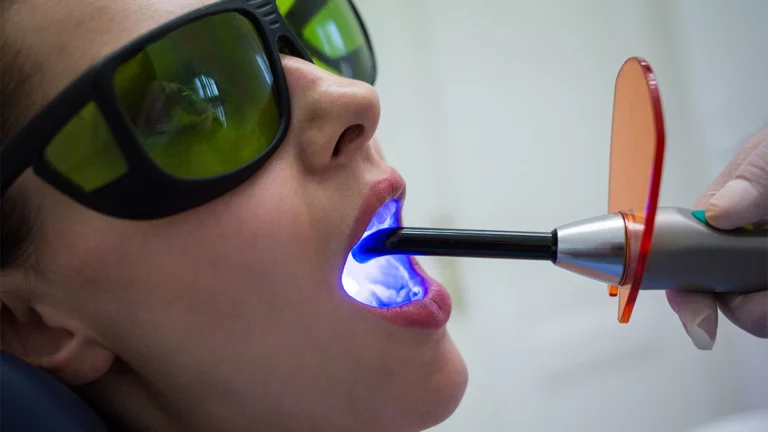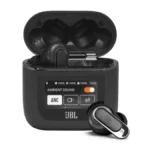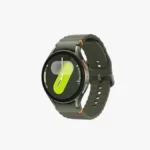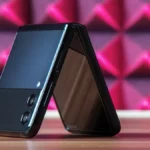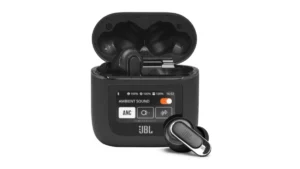A team of researchers from Tufts University has developed a tiny wearable device that can be attached to a tooth and transmit data about the food you consume. The tooth-mounted sensor can track every bite you take and its nutritional content. While this technology could benefit us significantly, it may worsen our already problematic food-related relationship.
- The tooth-mounted sensor is small, measuring only 2 square millimeters, and attaches to the surface of a tooth.
- The device has three layers: a bioresponsive layer in the center that absorbs chemicals and two outer layers of gold rings.
- The three layers work together like an antenna, transmitting and receiving waves in the radiofrequency spectrum
- When the tooth-mounted sensor encounters different chemicals, the electrical properties of the central layer change, causing it to transmit a unique spectrum of radio waves.
- The tooth-mounted sensor can wirelessly transmit information about salt, alcohol, and glucose to a smartphone or computer, but its creators believe it could be adaptable.
The simple and low-cost design of the tooth-mounted sensor makes it accessible to a wide range of people, including researchers looking for an inexpensive way to monitor nutrient intake in studies and individuals who cannot afford or find fitness trackers inadequate. Our ability to accurately recall what and how much we ate could be better, making this tooth-mounted sensor a helpful tool.
Side Effects of the Tooth-Mounted Sensors
It’s possible that even the smallest tracker can have some negative side effects. For instance, mobile apps already allow people to track their calorie intake and exercise, and some individuals may become overly fixated on this information. This can worsen eating disorders or obsessive-compulsive disorder (OCD). According to clinical psychologist Lara Pence from the Renfrew Center Eating Disorder Treatment Facility, trackers can promote a sense of guilt when a person exceeds their daily calorie limit, reinforcing the disease’s core pathology. She believes that the harmful qualities of trackers are apparent even without the need for further research.
- In 2017, a study found that fitness-tracking devices were linked to symptoms of eating disorders in college students. Interestingly, this was not the case for calorie-counting apps. However, there needs to be more scientific research regarding the overall effects of these devices.
This means that while some evidence suggests a negative impact of fitness monitoring gadgets on college student’s mental health, we do not have a comprehensive understanding of how these devices affect people’s overall well-being. Therefore, conducting more research to understand the potential risks and benefits of using these devices is crucial.
Conclusion
How could a tooth-mounted sensor that eliminates the time-consuming task of data entry in fitness monitoring fit the current trend? Our society already has an unhealthy preoccupation with physical appearance and body image. While a tooth-mounted sensor may not directly cause eating disorders, it could exacerbate symptoms for those already struggling with them and contribute to the normalization of disordered eating habits. Eating is not solely about the nutritional value of food; it is also a cultural experience and a source of enjoyment. Therefore, if the tooth-mounted sensor is affordable, it may seem appealing, but it is important to consider its potential negative effects on our relationship with food and our bodies.



